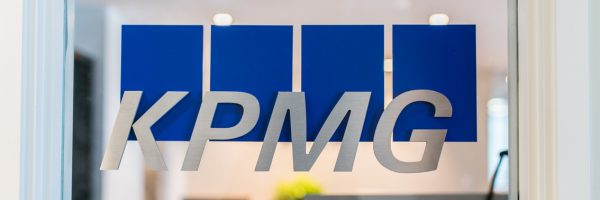Start Your Career at KPMG with an MBA

Those of you who actively watch the stars and skies might not be surprised by the parallels between the business universe and our actual cosmos.
Philadelphia or Boston? Where’s the Best Place to Earn a Part-Time MBA

If you are interested in pursuing a degree in a diverse East Coast city, want to be surrounded by history and culture, and still immerse yourself in growing business community, two main cities come to mind: Philadelphia and Boston.
Both cities are at the center of U.S. history, and continue to be some of its largest centers of commerce and academia, with numerous opportunities to put its stellar education to work.
Surrounded by so many possibilities for professional development, an MBA student in a city like Philadelphia or Boston may not want to put their career and income on hold to pursue a full-time degree.
Thankfully, many of the business schools in Philadelphia and Boston offer part-time MBA programs, allowing students more flexibility as they kick off their careers in these exciting cities. But how to decide which one? We’ll take a look at some of the top part-time MBA programs in each metro to help you choose the right city for you.
Location
Once the capital of the United States, Philadelphia has never stopped being a center of both business and history since the time it played host to the country’s founding fathers. Home to some of the oldest and best universities in the country, Philadelphia has experienced a renaissance in recent years as young talent has become priced out of more expensive metros like New York City and Washington DC. The cost of living in Philadelphia remains fairly low, while the ever-growing business scene in the city offers the opportunity for high earning potential. This year, 14 Philadelphia-area companies made the Fortune 500 list.
Like Philadelphia, Boston has been a center of commerce and trade since the days of the Boston Tea Party. Today, the city is home to nine Fortune 500 companies, including major established firms like GE (13th on the Fortune 500 list) and newer but thriving businesses like Wayfair. However, Boston has a much higher cost of living than Philadelphia. The city currently ranks as the third most expensive city in the country.
Programs
Between the Wharton School of Business and the Harvard Business School, Philadelphia and Boston offer two of the most highly regarded MBA programs in the country. However, both of these schools only offer full-time MBA programs. Students looking for more flexibility in their schedules still have a number of stellar programs to choose from.
Most of the part-time MBA programs in the Philadelphia metro work on a hybrid structure, allowing students to take a combination of classes both online and in person. Many programs also offer students the chance to select majors or concentrations in which to specialize their business education. With a variety of possible concentrations at some of the most highly-ranked part-time programs in the country, students from these programs have gone on to find employment at major firms like DuPont, KPMG, and JPMorgan Chase.
Part-Time MBA Programs in Philadelphia Include
- Lehigh University College of Business and Economics
- Fox School of Business – Temple University
- La Salle University
- LeBow College of Business – Drexel University
- Lerner College – University of Delaware
- Rohrer College of Business – Rowan University
- Rutgers School of Business, Camden
- Villanova School of Business
- West Chester University
Like Philadelphia, Boston’s part-time MBA programs offer more flexibility for students to complete their degree on their own time. Most courses are offered in the evening or on weekends, and can be taken over the course of just two years or up to seven. Programs like the MBA at D’Amore-McKim also give students the opportunity to concentrate in fields such as Corporate Finance, Corporate Renewal, Entrepreneurship, and more.
Part-Time MBA Programs in Boston Include
- Carroll School of Management – Boston College
- D’Amore-McKim School of Business – Northeastern University
- F.W. Olin Graduate School of Business – Babson College
- Questrom School of Business – Boston University
- Sawyer Business School – Suffolk University
- Simmons School of Management
Cost
The tuition costs can vary from program to program, and can also be cheaper if the part-time program is competed online. On average, programs in the Philadelphia metro area can range from $45,000-$65,000 for the degree. The range of costs in Boston can be slightly higher, with some students spending up to $95,000 over the course of their degree.
Jobs
Although the cost of an MBA in Boston may be slightly higher than Philadelphia, the difference in average salary between the two cities may even out concerns of cost. In Boston, the average salary for someone with an MBA degree in a field like finance is $112,000, whereas in Philadelphia it is only around $90,000 per year.
Industry Expert Ellen Terry Helps to Shape Analytics Program at Houston Bauer

Ellen Terry, a lecturer at the University of Houston – C.T. Bauer College of Business is bringing her years of analytics experience into the classroom to help students—and the university—prepare for changing industry needs.
According to a 2016 report from the McKinsey Global Institute, one of the biggest challenges to integrating data and analytics into their operations is simply finding the right person for the job. Bauer decided to respond to the ever-growing need for talent in the analytics field, making expansions to their program and following guidance from industry experts like Terry.
Ellen Terry, who currently serves as a lecturer in Bauer’s Department of Accountancy & Taxation, brings her many years of experience to help Bauer shape a new program that can address the growing needs of the industry. She is a former vice president in the Data Science Group at JPMorgan chase, also having served for more than a decade at Microsoft. Working alongside Kaye Newberry, Professor and Department Chair, and Michael Newman, a clinical professor and Director of Accounting Programs, Terry has played a key role in developing new graduate level advanced analytics courses at the university.
“We decided to start with the end game,” Terry said. “What competencies do students need when they start with a company and get the opportunity to apply data science on the job? At JPMorgan, I had a good view of incoming capabilities … the biggest challenge I saw was the ability to comprehend holistic business architectures and integrate the intelligence pieces.”
In addition to addressing these challenges through coursework, students will also have the chance to work with Big Four accounting firms like KPMG and Ernst & Young. The application of analytics training, however, Terry believes, will be applicable to many fields even outside of accounting. “I can’t think of many job markets that won’t be impacted,” she said “It’s already happening with the big companies: banks, accounting firms, manufacturers, governments … are all busy transforming.”
Despite the coming changes in various markets and industries, Terry has no concerns about what’s to come. “I’d like to say this to the students,” she said. “You are very lucky to be living in this era—the future is going to be amazing!”
KPMG Master of Accounting Program Arrives at Terry College of Business

A new partnership between the University of Georgia – Terry College of Business and personal finance firm KPMG will give accounting students the chance to participate in a one-of-a-kind program that prepares them for the digital marketplace.
Big Data and Business: An MBA vs. Masters in Business Analytics

2016 was the “Year of the Data Analyst.” According to the U.S. Bureau of Labor Statistics, the job market for various data analyst positions is growing far faster than average—around 27 percent annually. In fact, 85 percent of Fortune 500 companies have either launched big data projects or are planning to do so.
Big data, which refers to the practice of analyzing extremely large data sets to reveal trends and patterns, is reshaping the business world—and it’s here to stay. Companies like Google and Amazon have dedicated significant resources to big data, and a report by PWC estimates that the big data market for financial services is expected to increase to $53.4 billion in 2017.
As for the job market for data analysts, the McKinsey Global Institute estimates that by 2018, the U.S. could face a shortage of 140,000 to 190,000 workers with “deep analytical skills,” and 1.5 million managers and analyst with the necessary “know-how” to interpret and apply big data.
In sum, the increasing emphasis on big data in business translates to a growing need for workers who are able to analyze data and communicate the results effectively. Because employers want graduates who can do this work, many business schools are rethinking their curricula and integrating data science.
First Ever Smith Analytics Conference Coming April 21

The Robert H. Smith School of Business is hosting the first ever Smith Analytics Conference on April 21, 2017. The day-long forum is set to feature speakers from industry, government and academia who will discuss topics such as big data, business intelligence, predictive analytics, key performance indicators, risk analysis and marketing research. Continue reading…
